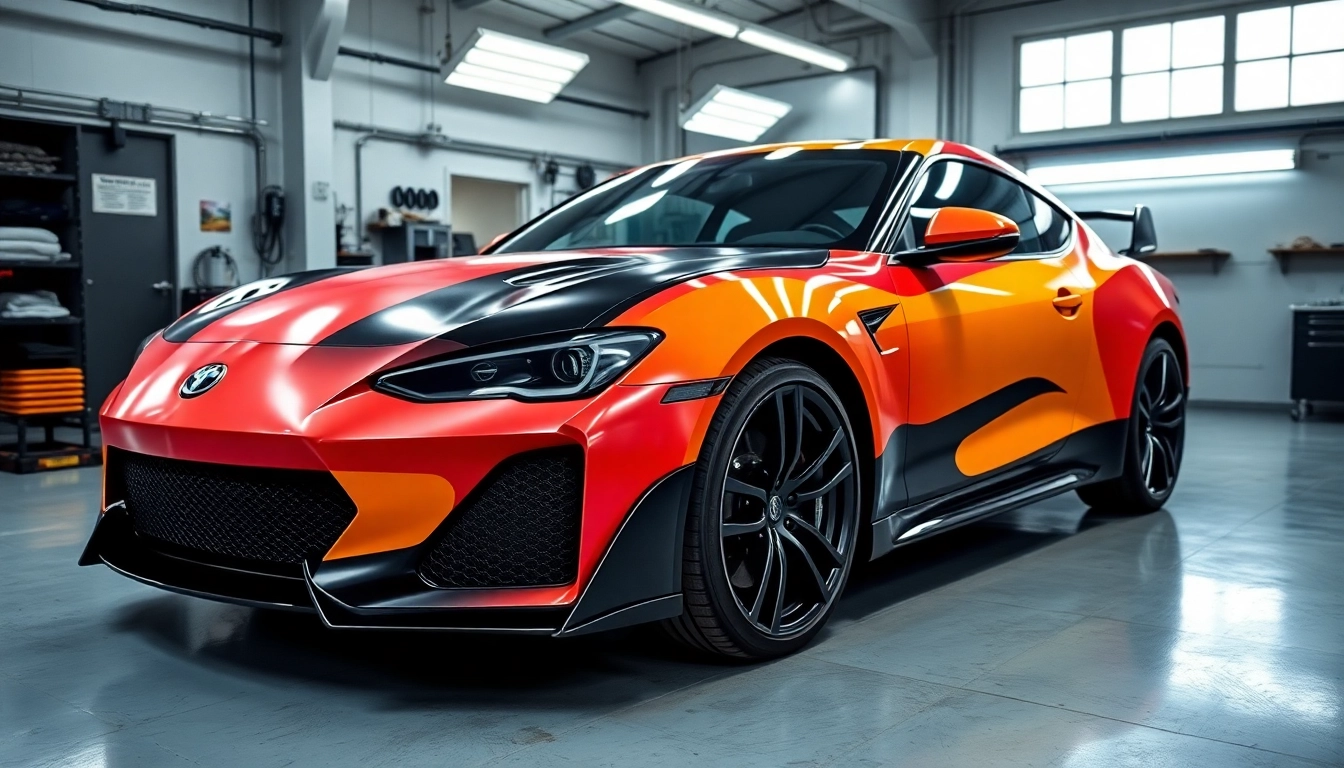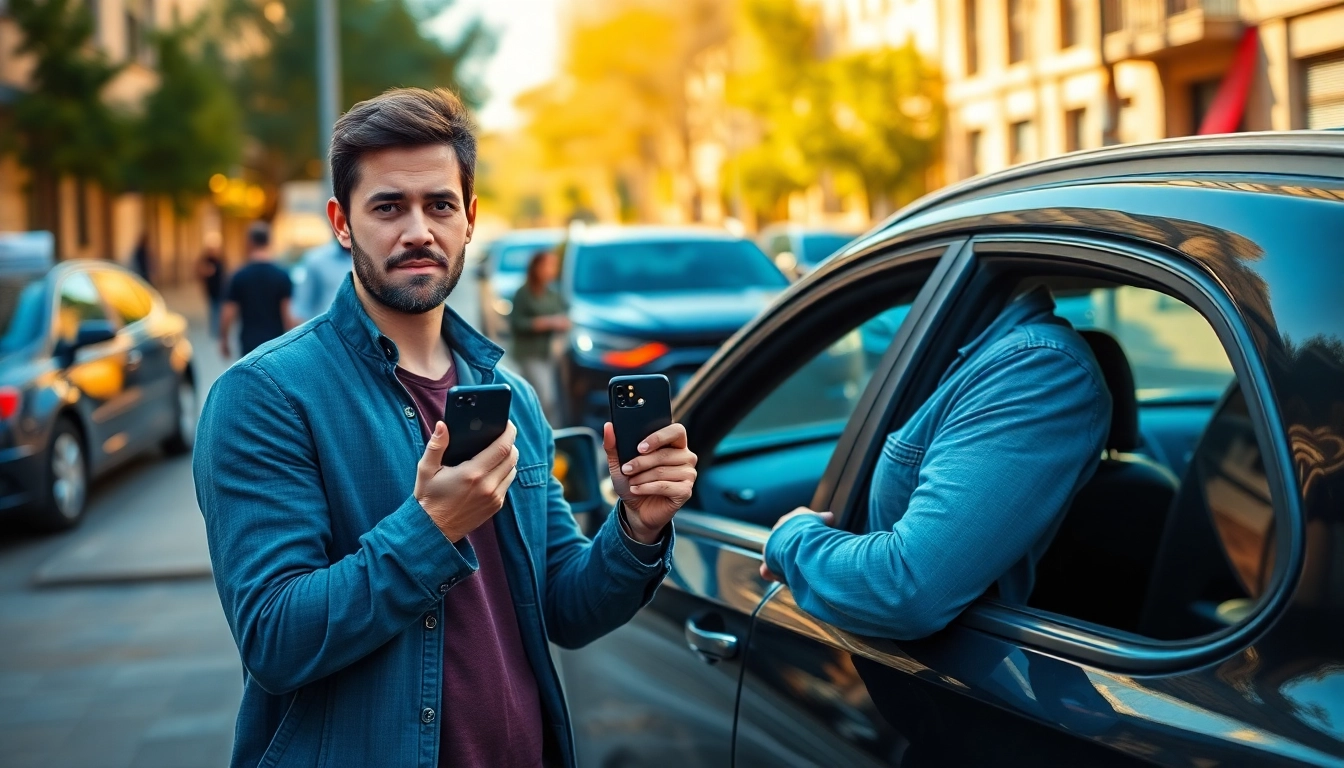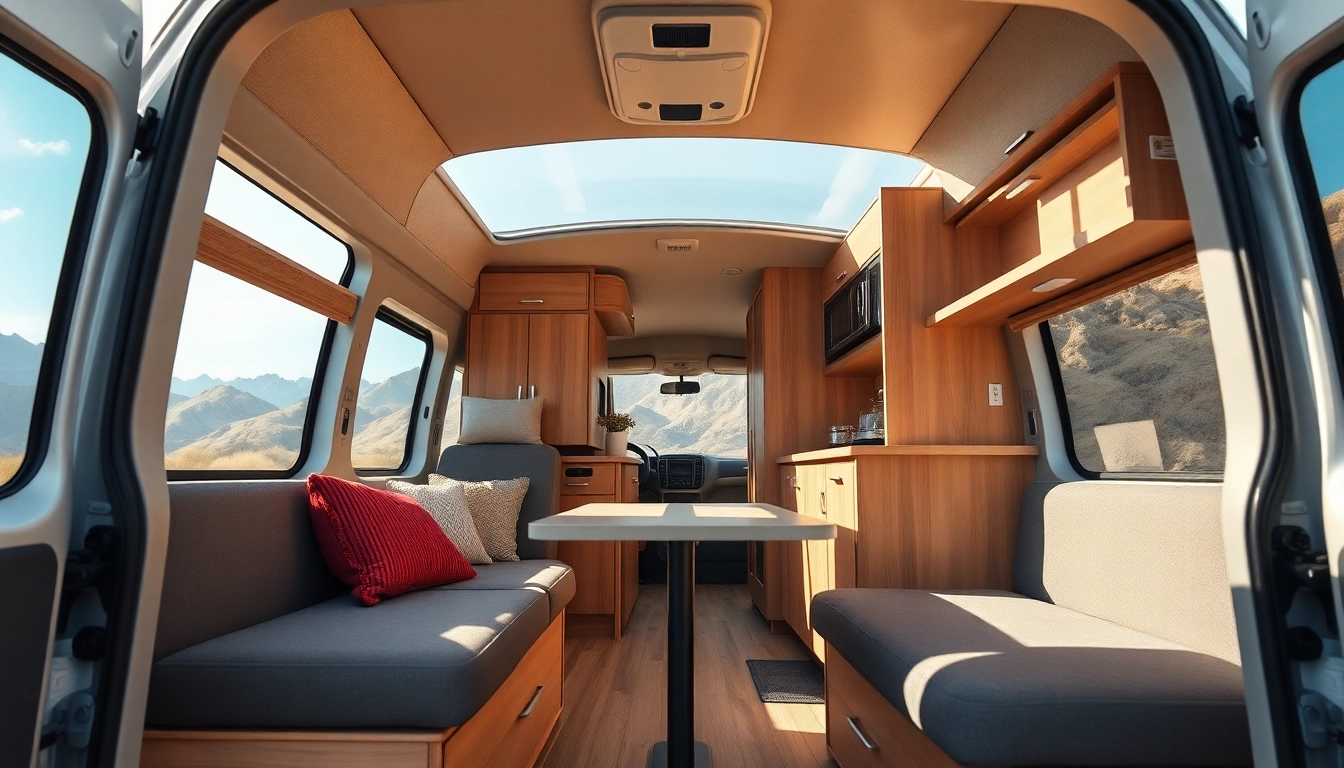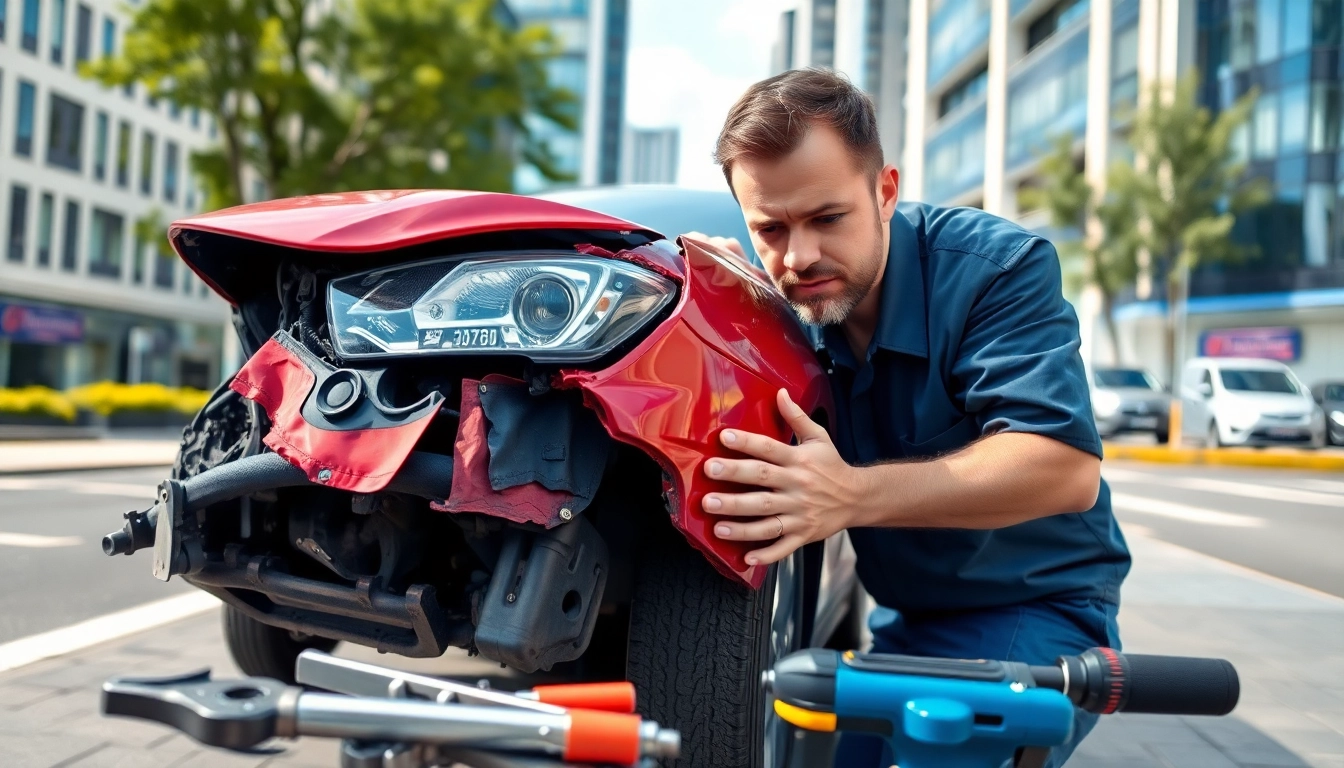Understanding Professional Car Wraps
In the realm of automotive customization, professional car wraps have emerged as a transformative solution. They provide car owners with the ability to alter the appearance of their vehicles without the permanence of traditional paint jobs. Car wraps are made from high-quality vinyl that can encapsulate an entire vehicle or specific panels, offering both protection and aesthetic enhancements. This article delves deeper into the world of car wraps, exploring their materials, benefits, installation processes, maintenance tips, and successful case studies.
What Are Professional Car Wraps?
Professional car wraps are custom-designed vinyl films that are applied to the exterior surfaces of vehicles. They serve multiple purposes, including:
- Cosmetic Changes: One of the main reasons people choose car wraps is to change the vehicle’s color, graphics, or both. This is particularly popular for those who want a unique look.
- Branding: Businesses often use car wraps to promote their brands. Custom graphics that feature logos and contact information can turn a vehicle into a mobile advertisement.
- Protection: A car wrap can protect the original paint from UV rays, scratches, and minor dings. This can enhance the car’s resale value and keep it looking new.
Materials and Types of Car Wraps
Car wraps are made from several different materials that define their quality, durability, and aesthetics. Here are the most common types:
- Vinyl Wraps: The most popular choice due to their flexibility and ease of application. They come in various finishes, including gloss, matte, and satin.
- Cast and Calendared Vinyls: Cast vinyls are more durable and conform to complex curves, making them ideal for high-quality wraps. Calendared vinyls are less expensive and suitable for flat surfaces.
- Perforated Vinyl: Often used for window graphics, it allows visibility from the inside while displaying vibrant graphics on the outside.
Benefits of Using Car Wraps Over Paint
Choosing a car wrap over a traditional paint job offers numerous advantages:
- Cost-Effective: Car wrapping is generally more budget-friendly than a full repaint. The processes involved in painting, such as sanding and priming, can increase costs significantly.
- Time Efficient: Wrapping can usually be completed in a day or two, whereas painting can take a week or more due to drying time and multiple layers.
- Easily Removable: Unlike paint, wraps can be removed without damaging the underlying surface, making it possible to revert to the original look or change designs as needed.
Choosing the Right Car Wrap for Your Vehicle
Key Factors to Consider
When selecting a professional car wrap, several critical factors must be taken into account:
- Purpose: Determine whether the wrap is for aesthetic purposes, advertising, or protection. This will influence the material and design used.
- Color and Finish: Consider how the color and finish of the wrap will complement or contrast with your vehicle’s design. Matte and gloss finishes can create drastically different looks.
- Durability: Understand the warranty and lifespan of the material. High-quality vinyl wraps often last 5-7 years with proper care.
- Professional Installation: Factor in the installation experience of the professional or company that will apply the wrap since improper installation can lead to premature wear or bubbling.
Popular Brands for Professional Car Wraps
When selecting vinyl wraps, some well-regarded brands include:
- 3M: Known for their durability and extensive color selection, 3M wraps are a top choice among professionals.
- Avery Dennison: Offers a wide range of colors and finishes, recognized for their easy application and removal.
- Vvivid: Provides a selection of budget-friendly options without compromising quality.
Cost Analysis: Investment vs. Value
The cost of professional car wraps can vary widely based on several factors, including the size of the vehicle, complexity of the design, and quality of materials used. Generally, costs can range from $2,000 to $5,000 or more for a full wrap. In contrast, the investment should also be viewed in terms of:
- Brand Visibility: For businesses, the advertising revenue generated from a wrapped vehicle may significantly outweigh the initial investment.
- Paint Protection: Protecting the original paint with a wrap can enhance the vehicle’s resale value, making it a smart financial move.
- Customization Options: Custom wraps allow for endless creativity, providing a way to express individuality.
Installation Process of Professional Car Wraps
DIY vs. Professional Installation
While some car enthusiasts may consider DIY installation, hiring professionals is often recommended due to the complexities involved in properly applying a wrap. Professional installers have the necessary experience, tools, and techniques to ensure a flawless finish. Here are some pros and cons of each option:
- DIY Installation:
- Pros: Cost savings and a personal touch.
- Cons: Higher risk of errors, resulting in a subpar appearance or shorter lifespan of the wrap.
- Professional Installation:
- Pros: Expertise, warranty, and proper tools ensure a high-quality finish.
- Cons: Higher upfront cost.
Steps for Proper Installation
If you choose to hire professionals for wrap installation, it’s helpful to understand the basic steps involved:
- Preparation: Clean the vehicle thoroughly to remove dirt, wax, and grease.
- Design Approval: Work on the final design and confirm it matches the client’s vision.
- Measuring and Trimming: Measure the vehicle to cut the vinyl to the appropriate size.
- Application: Apply the vinyl using specialized tools, ensuring it adheres smoothly to all contours.
- Finishing Touches: Heat and trim edges for a seamless finish and check for any imperfections.
Common Mistakes to Avoid
Here’s a list of mistakes to steer clear of during car wrap installation:
- Inadequate Surface Preparation: Failing to thoroughly clean and prepare the surface can lead to poor adhesion.
- Skipping Heating: Not heating the vinyl before applying can result in stretching or improper fit on curves.
- Overlapping Seams: Incorrect seam placement can cause lifting or peeling over time.
Maintenance of Vehicle Wraps
Caring for Your Car Wrap
Proper maintenance of your vehicle wrap is essential to prolong its life and appearance. Here are maintenance tips:
- Washing: Regularly wash the vehicle with mild soap and a soft sponge to remove dirt and contaminants.
- Avoiding Harsh Chemicals: Do not use abrasive cleaners, waxes, or solvents which can damage the wrap.
- Protecting from the Elements: Whenever possible, park in a garage or use a cover to protect it from UV exposure, rain, or snow.
Expected Lifespan of Professional Car Wraps
The lifespan of a vehicle wrap can vary depending on the type of vinyl used and care given. Generally, quality wraps can last between 3 to 7 years. Factors influencing lifespan include:
- Environmental Exposure: Harsh UV rays, frequent rain, or snow can wear down the material faster.
- Installation Quality: A well-installed wrap by professionals tends to last longer than a poorly done DIY job.
- Maintenance Care: Proper cleaning and care can significantly prolong the life of the wrap.
When to Consider Replacement
It’s important to monitor your vehicle wrap for signs that it’s time for a replacement:
- Fading Colors: If the colors start looking dull or faded, it might be time for a new wrap.
- Peeling Edges: Any peeling or lifting of the wrap indicates that it may need to be replaced.
- Stains or Damage: If the wrap has significant stains or damage that cannot be repaired, consider replacing it.
Case Studies: Successful Vehicle Wraps
Branding Success Stories
Numerous companies have benefited greatly from vehicle wraps as a marketing tool. For example, a local pizza restaurant launched a marketing campaign utilizing a brightly wrapped delivery car. The vibrant graphics and large logo increased affordably brand exposure, leading to a reported 30% rise in orders attributed directly to the vehicle wrap.
Transformations: Before and After
A well-documented transformation shows a basic white sedan turned into a striking red-and-black sports car wrap. The owner noted how the wrap not only made the car stand out but eventually led to inquiries from prospective buyers, highlighting the potential resale value boost.
Feedback from Professionally Wrapped Vehicle Owners
Many vehicle owners express satisfaction with their car wraps; they appreciate the unique design and protective qualities. Positive feedback often highlights the ease of cleaning the wrap compared to traditional paint and the overall fun of personalizing their vehicle.



